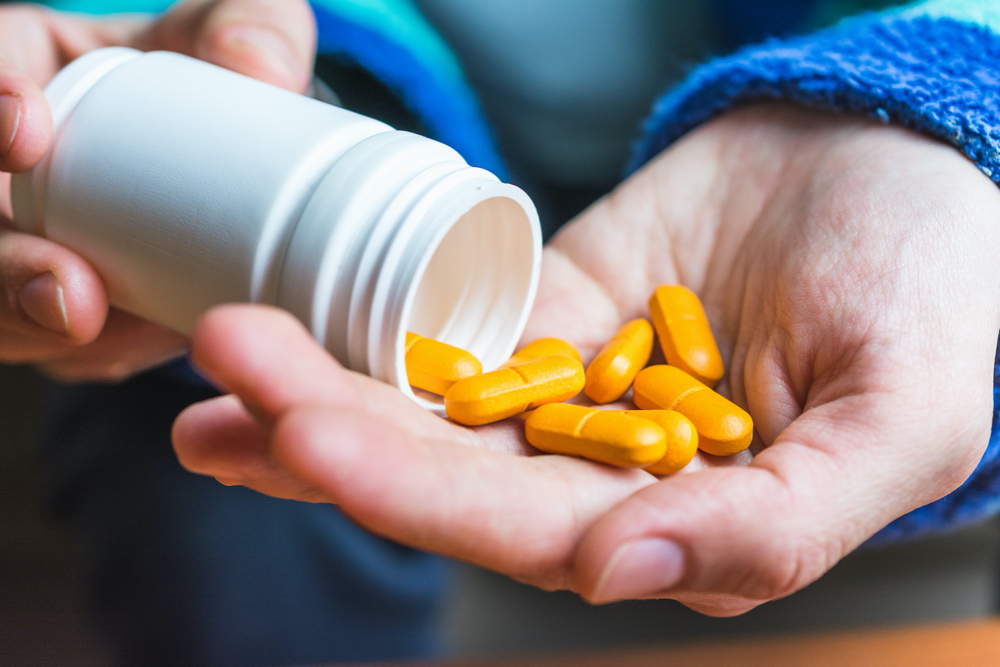- Fast results
- 4,000+ locations
- 4.8 star rating
Need Help? (888) GET LABS


A body that produces alcohol on its own is not as fancy as people expect it to be. In a social setting, inebriation results from drinking alcoholic beverages. But for those with auto-brewery syndrome, getting drunk does not require this social lubricant, as you can get intoxicated through a fermentation process that occurs in your gut.
The question remains: how do you develop auto-brewery syndrome? In this article, we discuss what this condition is all about and how to know if you’re at risk.
Auto-brewery syndrome (ABS )is a rare condition resulting from gut fermentation that allows your body to produce alcohol. This mechanism typically involves an overgrowth of microbes, specifically yeast or certain species of bacteria, in the digestive tract. When you consume carbohydrates, these microbes convert the sugar or starches into ethanol through fermentation.
Ethanol is the alcoholic ingredient of beer, wine, and distilled spirits. As this internally produced ethanol gets into your bloodstream, it causes intoxication despite not drinking even an ounce of an alcoholic drink.
The earliest reported case and discovery of auto-brewery syndrome(1)(2) was in the 1950s. Since then, several more have been documented, but the knowledge around ABS demands more progress and understanding. Nonetheless, research has shown that some underlying medical conditions can trigger ABS.
Within the available studies regarding auto-brewery syndrome, nothing indicates that ABS is directly hereditary. Substantial evidence, however, continues to underscore its connection with certain disorders, some of which are driven by genetic factors.
See below if you’re at risk of developing ABS and how the following triggers lead to gut fermentation.
If you’re taking antibiotics, especially those broad-spectrum types, your gut microbes will likely be wiped out, both the infection-causing bacteria and the good bacteria or probiotics.
When the population of good bacteria is significantly decreased, harmful microbes dominate the gut and damage the intestinal walls, causing malabsorption. This leaves excess carbohydrates to stagnate in the gut. Keep in mind that carbohydrates are the primary nutrients processed during fermentation to produce alcohol.
Additionally, the imbalance in the gut bacteria can promote the overgrowth of yeast. A popular fungi, yeast is known for leading the fermentation process that produces beer. In the digestive tract, a type of yeast known as Candida can overgrow(3) due to medications that include antibiotics.

The immune system eliminates harmful microbes that break the balance of gut microflora. Individuals with weak immune systems, like those with autoimmune diseases and AIDS, risk yeast and bacterial overgrowth, leading to ABS.
| Pro tip: Foods high in vitamin C can help improve your immunity. Likewise, vitamin C deficiency (typically confirmed through a vitamin C blood test) increases your risk of an impaired immune system. |
Carbohydrates are the fuel and primary requirement for yeasts and fermenting bacteria to manufacture alcohol via gut fermentation. Suppose you have too much carbohydrates in your digestive system, particularly simple sugars and refined starches. In that case, you’ll likely develop auto-brewery disease if other factors, such as certain medical conditions, are present.

Also Read: 10 Refined Carbohydrates You Should Avoid at All Costs
Not all people with diabetes automatically develop the auto-brewery syndrome. In fact, it’s a rare complication of diabetes. Still, it’s best to consult your doctor regarding the possibility of ABS.
Individuals with uncontrollable diabetes tend to have extremely high blood sugar levels. Sugar is highly essential for gut fermentation(4), which means if you have diabetes, you’re creating an ideal environment for yeast and bacteria to produce alcohol naturally.
In addition, diabetes can potentially alter gut flora and cause problems in your digestion. To top that, the condition can also weaken your immune system.
| Pro tip: Wondering if you have diabetes? Learn the early symptoms of diabetes to cross-check. More importantly, navigate the diabetes blood tests and consult your doctor regarding which one you should take. |
Also Read: Does Diabetes Change Your Appearance?
Inflammatory bowel diseases like ulcerative colitis and Crohn’s disease(5) disrupt the microbial balance in the gastrointestinal tract. These conditions cause inflammation, forming pockets through strictures and fistulas, where food, yeast, and bacteria can get trapped. As a result, the interaction between these deposits can lead to alcohol production.
It’s important to note, however, that not everyone with IBD can develop ABS. Factors such as the severity of the condition, medication, diet, and types of gut microflora can influence your risk.

Also Read: 5 Diet Tips if You Have Stomach Ulcers (H. pylori Infection)
Short bowel syndrome is described exactly as it sounds. A part of the small intestine is removed or damaged; therefore, your body fails to absorb sufficient nutrients. It could be due to a condition that drives the surgical removal of the small intestine portion or a congenital disability in which a baby is born with SBS.
Those with SBS tend to retain carbohydrates(6) that have not been completely broken down in the digestive tract. This leads to an overgrowth of bacteria, which might result in ABS, especially if the abundant microflora includes those capable of gut fermentation.
The liver filters toxins, and this function becomes impaired with liver disease. Certain toxins can break the balance in gut microbes, promoting overgrowth. Additionally, the damaged liver may also inhibit or lessen the secretion of essential enzymes that digest carbohydrates. As established above, the surplus in carbohydrates can fuel gut fermentation.
| Pro tip: Liver disease can be hereditary, driven by lifestyle, or both. Check out the harmful habits that destroy your liver. |
Also Read: Liver Function Test: How To Detect Hepatitis in Children
Individuals with severe oral cavities and tooth decay can experience rapid growth of Candida albicans(7), the type of yeast commonly associated with ABS. Although periodontal diseases do not impose a direct and solid causation relationship with the auto-brewery syndrome, when paired with other medical conditions above, like liver disease, it increases the risk for ABS twofold.
| Pro tip: Protecting your gum health is crucial in keeping the balance in the intestinal microflora population. If you’re experiencing inflammation, see your dentist and consider these home remedies for gum swelling as supplementary sources of relief. |
Given the complexity of the potential cause of auto-brewery syndrome, your doctor will likely conduct a series of tests and recommend certain lab procedures to establish an accurate diagnosis. Your medical history will be revisited, and a physical exam will be performed.
Symptoms of alcohol intoxication will be noted, including the following:
These conditions also reflect auto-brewery syndrome symptoms as it mimics intoxication when consuming alcoholic drinks.
Additionally, conditions such as alcohol abuse and head injuries will be ruled out through specific tests, such as a CT scan.
Other lab tests may also be performed, like the blood alcohol concentration (BAC) or alcohol by ethanol urine test, stool test for traces of yeast or bacterial overgrowth, and endoscopy.
Treating ABS requires understanding its underlying cause, specifically the driving factors for microbial overgrowth. In addition, changing your diet by reducing carbohydrates can help create a hostile environment for yeast and other fermenting microbes. In turn, this further minimizes alcohol production and promotes the growth of good bacteria.
Medications like antibiotics and antifungals, specific for targeting fermenting species in the gut, may be prescribed depending on which type supercharges the alcohol production. Plus, your doctor may also recommend adding probiotics to your diet, like yogurt and apple cider vinegar.
ABS is an extremely rare digestive condition. In fact, according to a study published in The American Journal of Gastroenterology(8), the number of documented cases of auto-brewery syndrome in the world is only less than a hundred.
However, there’s a chance that there could be more, considering the condition is quite challenging to diagnose as it mimics inebriation due to alcohol consumption. Nevertheless, the disparity between the actual and report numbers is often considered less significant.
It’s unlikely to develop auto-brewery syndrome if you don’t have the underlying conditions that act as triggers, such as Crohn’s disease, diabetes, and health problems that lead to gut microbe imbalance. Simply put, an individual does not suddenly have auto-brewery syndrome out of the blue.
As the overgrowth of fermenting bacteria and yeast in the gut drives auto-brewery syndrome, its development can be triggered by underlying medical conditions (IBS, diabetes, etc.), a weakened immune system, unregulated antibiotic intake, and a diet rich in sugars and carbohydrates.
While not necessarily fatal on its own, the auto-brewery syndrome may come with severe complications, especially when tied up with the underlying condition that triggers the gut fermentation. These include liver damage, problems with cognitive functions, mental health issues, and digestive sensitivity. As ABS mimics alcohol intoxication, it also increases your risk of accidents, not to mention legal and social consequences if you are not diagnosed prior.
A breathalyzer can detect the amount of alcohol from a person’s breath, regardless of whether it came from liquor or auto-brewery syndrome. What it cannot do is diagnose the condition. Hence, it’s crucial to undergo proper diagnosis through your doctor as you might find yourself in a confusing situation when a breathalyzer test reads high blood alcohol content despite not drinking any alcoholic beverage.
Auto-brewery syndrome occurs in a relatively small demographic, but that doesn’t mean it should be taken for granted. While not life-threatening, it is one of the few disorders that can impact your social life directly. This is because if you fail to have ABS diagnosed, you’ll likely experience intoxication even if you don’t consume alcoholic drinks and/or food. Ask your doctor if you are at risk of developing auto-brewery syndrome.
1 Cordell BJ, Kanodia A, Miller GK. Case-Control Research Study of Auto-Brewery Syndrome. Glob Adv Health Med. 2019 Apr 18;8:2164956119837566. doi: 10.1177/2164956119837566. PMID: 31037230; PMCID: PMC6475837.
2 Kaji H, Asanuma Y, Yahara O, Shibue H, Hisamura M, Saito N, Kawakami Y, Murao M. Intragastrointestinal alcohol fermentation syndrome: report of two cases and review of the literature. J Forensic Sci Soc. 1984 Sep-Oct;24(5):461-71. doi: 10.1016/s0015-7368(84)72325-5. PMID: 6520589.
3 Paramsothy J, Gutlapalli SD, Ganipineni VDP, Okorie IJ, Ugwendum D, Piccione G, Ducey J, Kouyate G, Onana A, Emmer L, Arulthasan V, Otterbeck P, Nfonoyim J. Understanding Auto-Brewery Syndrome in 2023: A Clinical and Comprehensive Review of a Rare Medical Condition. Cureus. 2023 Apr 17;15(4):e37678. doi: 10.7759/cureus.37678. PMID: 37206535; PMCID: PMC10189828.
4 Patel P, Patel D, Gutlapalli SD, Okorie IJ, Onana AE, Ugwendum D, Arrey Agbor DB, Munoh Kenne F, Otterbeck P, Nfonoyim J. The Associations of Auto-Brewery Syndrome and Diabetes Mellitus: A Literature Review and Clinical Perspective. Cureus. 2023 Jul 15;15(7):e41924. doi: 10.7759/cureus.41924. PMID: 37588335; PMCID: PMC10425700.
5 Cordell B, Kanodia A, Miller GK. Factors in an Auto-Brewery Syndrome group compared to an American Gut Project group: a case-control study. F1000Res. 2021 Jun 8;10:457. doi: 10.12688/f1000research.52743.1. PMID: 34567530; PMCID: PMC8422346.
6 Dinis-Oliveira RJ. The Auto-Brewery Syndrome: A Perfect Metabolic “Storm” with Clinical and Forensic Implications. J Clin Med. 2021 Oct 10;10(20):4637. doi: 10.3390/jcm10204637. PMID: 34682761; PMCID: PMC8537665.
7 Takahashi G, Hoshikawa K, Kan S, Akimaru R, Kodama Y, Sato T, Kakisaka K, Yamada Y. Auto-brewery syndrome caused by oral fungi and periodontal disease bacteria. Acute Med Surg. 2021 May 3;8(1):e652. doi: 10.1002/ams2.652. PMID: 33976897; PMCID: PMC8091436.
8 Suarez, Laura Suzanne K. MD1; Simms, Larnelle N. MD2; Al Rubaye, Ayat MD3; Marcus, Akiva J. MD, PhD4. S2183 Auto-brewery Syndrome: Drunk on Carbohydrates. The American Journal of Gastroenterology 116():p S936, October 2021. | DOI: 10.14309/01.ajg.0000782264.48793.46

© Copyright 2025 Personalabs. All Rights Reserved.